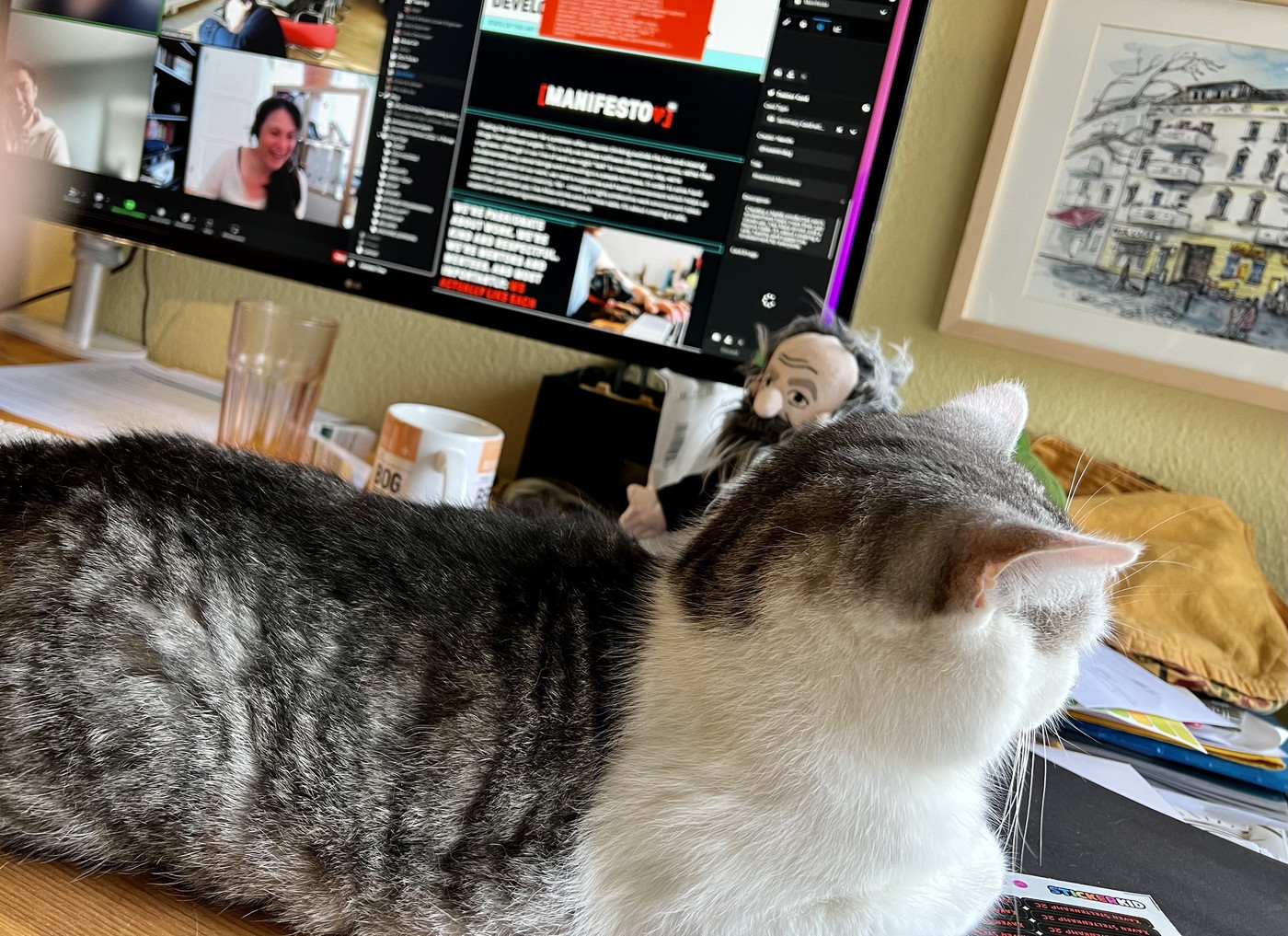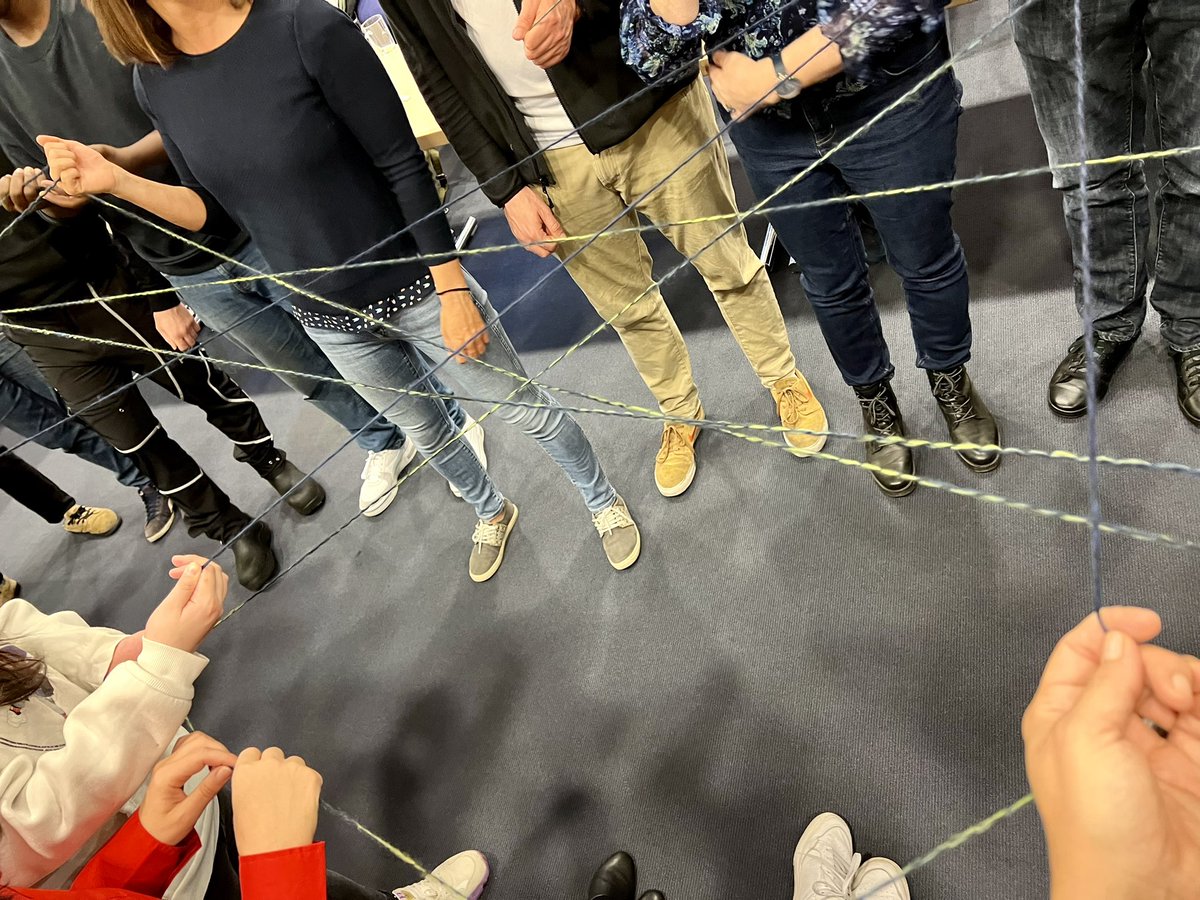From a workers' council to a boss

_As a workers' council member and unionist for many years - what is it like to be the boss of an IT company now?
It was a totally new perspective that I had to get used to. But it is also a great opportunity: as a former workers' council member in Linksfraktion in the German Bundestag and a unionist, I know how important good working conditions are for the employees. Now I am in a position to implement these values at Hivemind.
What was particularly interesting was the experience of how difficult it can be as an employer to enforce good working conditions. Templates for employment contracts tend to be employer-friendly to downright exploitative. Legal advice from lawyers often aims to show ways of circumventing labour law. That's not what I am looking for of course.

_What did you change at Hivemind?
First of all, we updated our employment contracts to allow for more vacation days and shorter full-time. Instead of 24 days, our employees now have 30 days of vacation, not including the company holidays over Christmas, which come on top.
In addition, we have reduced maximum working hours from 40 to 38 hours. In the future we want to go down to 35 hours, and the next step this year will be 37 hours. Additionally, we have stipulated that we will not do business with fossil fuels, defence and surveillance, as we want to preserve the world for our children and do our part.
We are also committed to more diversity in the workplace and especially want to promote women/non-men in the tech industry. We actually work with headhunters to achieve this goal. One problem is that women are generally underrepresented in STEM fields. In addition, we have introduced a professional recruitment process that screens out toxic people in advance. We also do not tolerate discriminatory or sexist behaviour among our clients. Unfortunately, there is still a lot to do in this respect.
_Is there a workers' council at Hivemind?
This is a difficult issue for us. What do we do if the workers don´t start a workers' council? An employer-appointed workers' council is not the answer. That's why it's even more important for me to put good working conditions first. We also hold regular staff meetings and get feedback from them to make sure we are on the right track.

If there is ever a workers' council, I would be very pleased because organised co-determination actually makes a lot of things easier for employers. It is of course also the workers' right to form a workers' council if they choose to do so.
Enforcing good working conditions can be a challenge, as workers often feel pressure to work even when they are not well. However, as a boss, I make sure that leave days are respected and that people really do not work when they are sick. Several times I have had to send people home or to bed who wanted to drag themselves to work with a cold or were sniffling in front of the PC at home. The well-being of our team always comes first.
This includes eliminating "sources of stress" before they can take hold. Sources of stress are, for example, the guilty conscience when children are sick, have to be picked up or have to go to the paediatrician, parents who have to be cared for. If people are mentally there, they cannot concentrate well or be creative. That's why we say "family first". Take care of these things first, and when you can be reassured that everyone is taken care of, you can work well. A sick child or mother who needs to be accompanied to the doctor is not a problem for us and not a reason for discussion.

_Hivemind employs people from many different countries. What are the challenges you run into as a responsible employer?
Definitely. We currently have staff from 7 different countries, from Turkey to Portugal. One of the challenges is the translation of employment contracts into national law. This can sometimes be a real problem to enforce our labour standards, as working conditions vary significantly in some countries. We always try to set the bar higher for our employees in countries with a worse standard of labour law than required by law (e.g. voluntary sick pay).
Germany is in the midfield as far as workers' rights are concerned. Portugal, Spain and Austria are better off. In Austria, for example, there is only a one-month probationary period and nationwide collective agreements. Employment contracts are reviewed by the Chamber of Labour. Overtime is also compensated either with 1.5 times the normal wage or with time off in lieu. In Italy, on the other hand, penalties and suspensions may or even must be included in the employment contract, for example for showing up to work drunk. British labour law is without doubt the most anti-employee.




